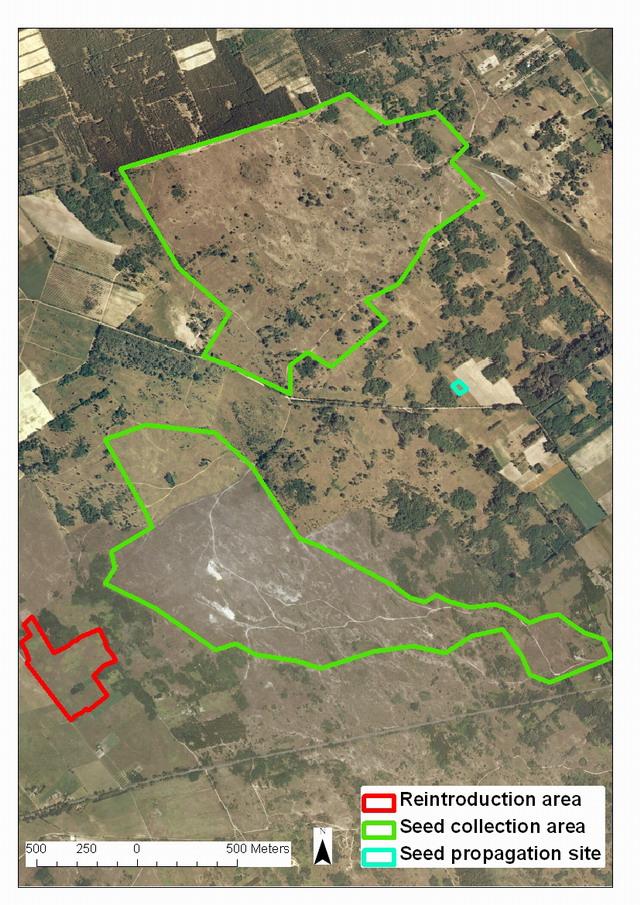In the frame of The establishment of the Pannon Seed Bank for the long term ex situ conservation of Hungarian vascular wild plants Life+ programme (2010–2014), approximately at least 800 species of the Pannonian native flora will be stored in the Pannon Seed Bank. In the project we would like to set an example of how seed banks can assist in situ species conservation activities. Therefore seed bank samples of 10 species characteristic to Pannonian sand steppes (Festucetum vaginatae Rapaics ex Soo 1929) are to be reintroduced on oldfi elds in the Hungarian Kiskunsag Region. Seeds are to be collected over three years from 2011 to 2013. Seeds will be reintroduced following 0–3 years of storage in the Pannon Seed Bank to test the effect of storage on seed quality. Seeds will be stored at 0 ºC following drying to a 4–8 % moisture content. Part of the seeds will be reintroduced following propagation at two sites. Seeds will be sown as seed mixtures in six oldfields of altogether 2 hectares. Five sites will be used for sowing seed mixtures from direct fi eld collections without any propagation. The sixth site will be used for reintroduction of seed mixtures from both propagation sites and direct collections. Reintroduction and restoration success will be evaluated by monitoring the phenology of the reintroduced species and vegetation development using phytosociological releves. This way comparison of seed sample quality and reintroduction success in different years and the effects of storage will be feasible.
Map of Fülöpháza Sand Dune Area of the Kiskunság National Park with sites of reintroduction, seed collection and propagation.
